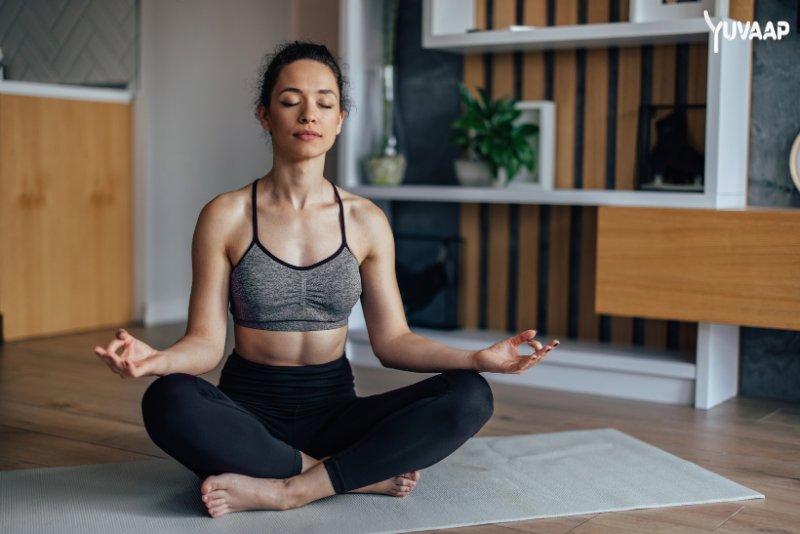Did you know how you move your body can affect how you feel inside? It might sound surprising, but simple activities like exercising, breathing deeply, or even drawing can help lift your spirits and make you feel calmer and happier. This blog is for anyone who sometimes feels overwhelmed, anxious, or just plain sad. We’re going to talk about different kinds of mental health exercises that can help you feel better, both in your mind and your body. By the end of this blog, you’ll have a bunch of new tools to help you manage stress and boost your mood, including some you can do right at home without any special equipment.
Physical Exercises for Mental Health

When we think about exercise, it’s easy to imagine gyms and heavy equipment. However, improving your mood through activity doesn’t require a gym membership. Whether it’s a brisk walk in the park, a quick session of stretching in your living room, or a yoga class online, moving your body is a powerful way to enhance your mental well-being. For more on how outdoor activities can specifically boost your well-being, check out our detailed guide on how green exercises can improve your physical and mental health.
The Science Behind Exercise and Mood
When you exercise, your body releases chemicals called endorphins. These are often called ‘feel-good’ hormones because they make you feel happy and relaxed. People who engage in regular physical activities have fewer symptoms of depression and anxiety. For instance, a 2018 study in The Lancet Psychiatry journal found that people who exercised had 43% fewer days of poor mental health compared to those who didn’t.
Home-Based Workouts to Try
You don’t need a gym to get moving. Here are a few exercises you can try at home:
- Cardio exercises: Jumping jacks, dancing to your favorite music, or even jogging in place can significantly boost your mood.
- Strength training: Use bodyweight exercises like push-ups, sit-ups, and yoga poses to build strength. These exercises help not only your body but also your mental health by improving endurance and resilience.
Yoga for Mind and Body
Yoga is particularly beneficial as it connects the mind and body through breath and movement. This practice helps to reduce stress levels, enhance concentration, and improve overall emotional resilience. Integrating yoga into your daily routine can be as simple as following online tutorials that guide you through various poses and breathing techniques, making it accessible regardless of your physical location. If you’re new to yoga and would like to see some of these practices in action, check out this helpful video that demonstrates yoga techniques that can enhance both your physical and mental health.
Yoga not only enhances physical flexibility but is also a powerful tool for mental health, particularly in managing depression. To understand more about how yoga can specifically aid in combating depression, read our detailed article on Yoga for Depression
Breathing Exercises for Relaxation

Deep breathing is a powerful tool for reducing stress and anxiety that you can practice anywhere. These exercises are easy to learn and can be a quick fix to decrease stress.
How Breathing Works
Deep breathing helps to slow your heart rate and lower blood pressure, creating a feeling of calm. It also increases the flow of oxygen to your brain, which can immediately enhance your mood and reduce anxiety.
Breathing Techniques to Try Anywhere
- Deep Breathing: Sit or lie down in a comfortable position. Slowly inhale through your nose, filling your lungs fully, and then exhale gently, either through your mouth or nose.
- The 4-7-8 Technique: This technique involves inhaling for 4 seconds, holding the breath for 7 seconds, and exhaling for 8 seconds. This pattern not only helps with relaxation but also aids in falling asleep.
- Box Breathing: Inhale for four counts, hold for four, exhale for four, and then hold again for four. This method is excellent for when you need a quick way to regain your calm during stressful times.
Creative Outlets for Emotional Stability

Engaging in creative activities is not just fun; it’s also incredibly beneficial for your mental health. Activities like drawing, writing, playing music, or crafting can serve as powerful outlets for expressing feelings and reducing stress.
Why Creativity Helps
When you create, you focus on the present moment, much like meditation. This focus can help distract from ongoing stress and bring about feelings of joy and accomplishment. According to a study published in the Journal of Positive Psychology, engaging in creative activities contributes to an “upward spiral” of positive emotions, helping combat depression and anxiety.
Simple Creative Activities to Try
- Drawing and Painting: You don’t need to be an artist. Just grab some colors and start making marks on paper. Focus on the process, not the product.
- Writing or Journaling: Writing down your thoughts and feelings can help manage anxiety, reduce stress, and cope with depression. Start a daily journal, or try writing poetry or short stories.
- Music and Dance: Listening to music can lift your spirits while playing an instrument or dancing can be a wonderful way to express emotions non-verbally.
- Crafts: Try knitting, crocheting, or building model kits. These activities require focus and result in a tangible product, which can be incredibly satisfying.
Building a Routine to Maintain Mental Health
Consistency is key when it comes to mental health exercises. Building a routine that includes physical exercises, breathing techniques, meditation, and creative outlets can significantly enhance your mental and emotional well-being.
Importance of a Routine
A structured routine can help reduce anxiety by creating predictability and a sense of control over your day. A routine ensures that you regularly engage in activities that boost your mood and maintain your mental health, making them habits rather than afterthoughts.
Tips for Creating a Sustainable Routine
- Set Realistic Goals: Start small and gradually build up. If meditating for 30 minutes seems daunting, start with 5 minutes and increase the time as you get comfortable.
- Incorporate Variety: Keep your routine interesting by mixing different types of activities. One day you might focus more on physical activities, while another day might be more about creativity.
- Plan Your Week: Schedule time for your mental health activities just as you would for any other important appointment. This makes it more likely that you’ll stick to your routine.
- Use Technology: Utilize apps to remind you of your activities, track your progress, and stay motivated. Yuvaap’s wellness application can be especially useful in providing personalized tips and tracking your emotional health.
- Be Flexible: Some days might not go as planned, and that’s okay. Be willing to adjust your routine as needed and be gentle with yourself.
By embracing creative outlets and building a robust routine, you can effectively manage your mental health and create a more balanced, fulfilling life. These strategies are not only effective in alleviating symptoms of stress and anxiety but also in building resilience against future challenges.
As we wrap up our discussion on mental health exercises, it’s clear that maintaining our mental and emotional well-being is as crucial as taking care of our physical health. By incorporating various activities into our daily lives, from physical workouts to creative pursuits and structured routines, we can foster a balanced and fulfilling life. Remember, the goal isn’t to overhaul your life overnight but to make small, manageable changes that collectively enhance your overall well-being.
FAQs
References
https://pubmed.ncbi.nlm.nih.gov/30099000
https://www.sciencedirect.com/science/article/abs/pii/S0306987712000321

Priyanka Khurana Goyal is a prominent Indian figure renowned for her diverse accomplishments and contributions across various fields.. Read more



